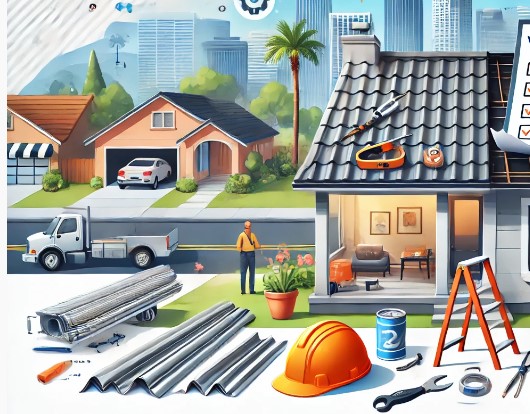Image Source: Pixabay
Household items like cleaning products, batteries, and paints seem harmless but often contain hazardous chemicals. Improper handling can cause severe health risks or environmental damage.
Safety starts with awareness and careful management. Knowing how to store, use, and dispose of harmful items minimizes accidents while protecting your family and surroundings.
Let’s explore key tips to handle hazardous materials responsibly in everyday settings.
1. Wear Appropriate Protective Gear When Handling Chemicals
Household chemicals can cause burns, respiratory issues, or skin irritation. To protect your skin when handling these substances, wear goggles and gloves made from nitrile or rubber.
Some products release harmful fumes. A basic respirator mask prevents inhaling toxic vapors, especially in poorly ventilated areas. Long sleeves and closed-toe shoes add an extra layer of protection.
Keep gear stored nearby for quick access during use. Well-maintained protective equipment ensures you’re always ready to handle hazardous materials safely.
2. Follow Local Guidelines for Proper Disposal of Toxic Waste
Dumping hazardous waste in regular trash harms the environment and violates disposal laws. Many communities offer dedicated drop-off sites or collection events for items like batteries, paint, or motor oil.
It would help to check your local government’s website for specific instructions on separating and discarding toxic materials safely. Some services even handle electronic waste.
Improper disposal could contaminate water sources and soil. Following guidelines ensures dangerous substances are treated correctly without threatening ecosystems or public health.
3. Call Professionals for Specialized Situations
Certain hazardous materials require expert handling. Spills involving biohazards, asbestos, or large chemical leaks are too dangerous for untrained individuals to manage safely.
For complex tasks like mold remediation or crime scene cleanup, consider hiring certified professionals who follow strict safety protocols. They use advanced tools and techniques to contain hazards while minimizing risks.
Trying to handle such situations alone can escalate dangers. Professional teams guarantee proper containment and disposal while effectively protecting your household.
4. Store Chemicals in Original, Labeled Containers
Transferring chemicals to unlabeled bottles can lead to dangerous mix-ups. Original containers have crucial safety details, such as usage instructions, hazards, and emergency actions.
Secure lids tightly to prevent leaks or spills. It is also vital to keep products upright and away from heat sources or direct sunlight, which can cause degradation or combustion risks.
Childproof storage is essential in homes with kids or pets. Cabinets with locks or high shelves ensure harmful substances stay out of reach while remaining clearly identifiable when needed.
5. Keep a First Aid Kit Accessible
Accidents can happen, even with careful handling of hazardous materials. Having a well-stocked first aid kit nearby ensures you’re prepared for any minor injuries that may occur. Include essential items like bandages, antiseptic wipes, and burn creams specifically designed for chemical exposure.
It’s also helpful to have emergency contact numbers readily available, including poison control. This preparation allows you to act quickly if an incident arises and helps minimize potential harm while maintaining a safe environment at home.
Parting Shot
Hazardous materials are part of daily life, but handling them responsibly safeguards your home and community. A little extra care can prevent serious accidents and long-term harm.
Generally, stay proactive with safety measures, and don’t hesitate to involve professionals when risks go beyond your control. Responsible action today protects everyone’s future tomorrow.
Source: Baddiehub






